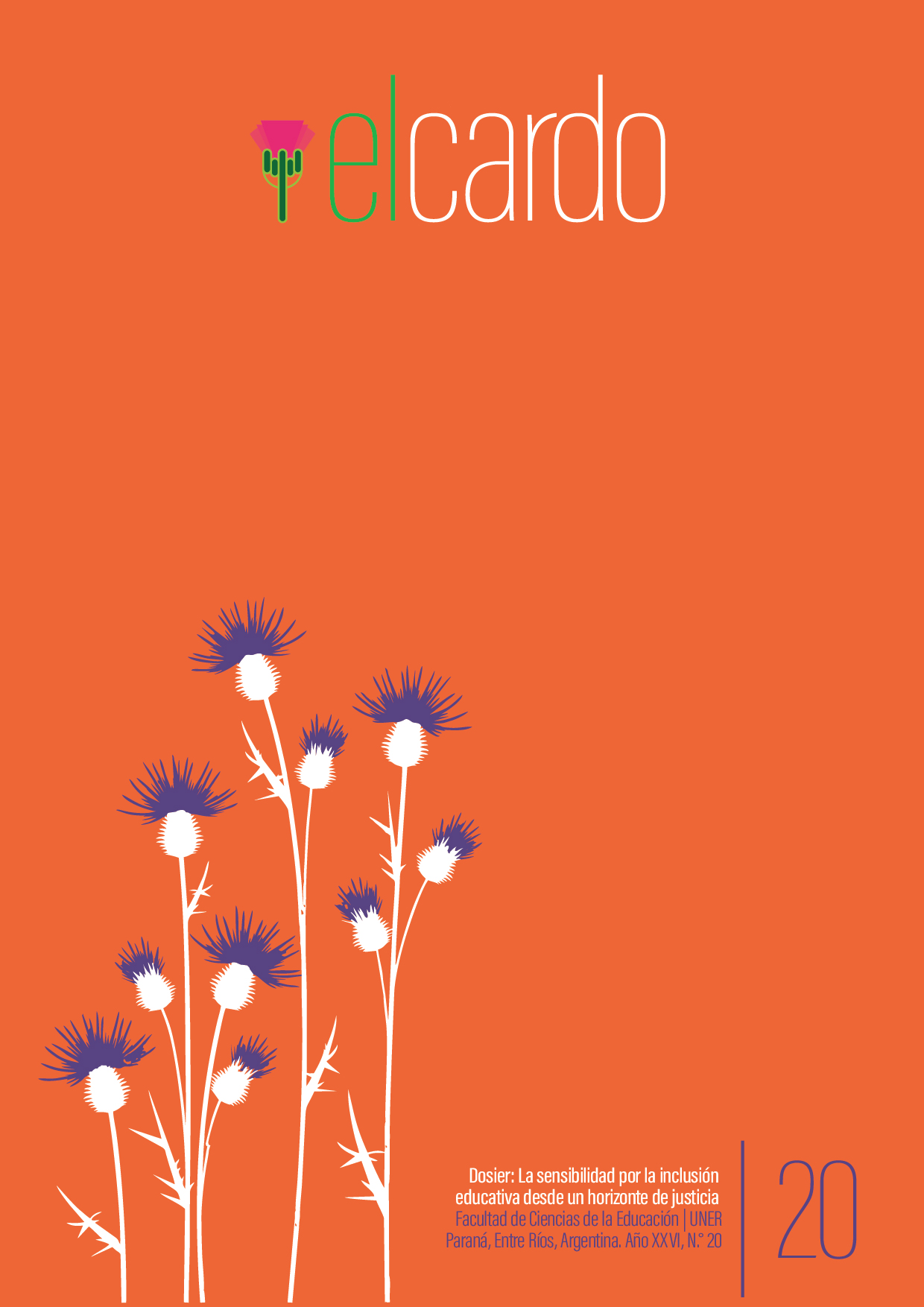La Inclusión en escenarios educativos rurales y hospitalarios: una reflexión desde la perspectiva del reconocimiento
Contenido principal del artículo
Resumen
El artículo tiene como propósito problematizar la inclusión educativa desde la perspectiva del reconocimiento a partir de las vivencias relatadas por niñas, niños, docentes y cuidadores sobre el acto educativo en escenarios hospitalarios y de escolaridad rural. Para ello, la inclusión educativa se asume como una apuesta pedagógica y política que se va tejiendo desde las formas en que se relacionan afectiva y emocionalmente los actores en estos espacios y tiempos educativos. Así las cosas, el artículo inicia con una breve disertación teórica que trenza a modo de elementos bisagra las relaciones entre inclusión educativa y perspectiva del reconocimiento. Posteriormente, se lleva a cabo una interpretación crítica de los relatos de los actores que develan las luchas por el reconocimiento como prácticas de inclusión que se contraponen a las experiencias de menosprecio como prácticas de exclusión en escenarios educativos hospitalarios y de escolaridad rural. Y, por último, a modo de final abierto se dejan planteadas algunas conclusiones que invitan a seguir pensando, desde la pedagogía rural y hospitalaria, la inclusión educativa a partir de la dimensión simbólica de las relaciones afectivas y emocionales configuradas entre los actores como acto de justicia sustentado en los sentimientos de autoconfianza, autorrespeto y autoestima.
Descargas
Detalles del artículo

Esta obra está bajo una licencia internacional Creative Commons Atribución-NoComercial-CompartirIgual 4.0.
Las ediciones no tienen cargos para las y los autores ni para las y los lectores, y se incita a las y los autores a depositar sus contribuciones en otros repositorios institucionales y temáticos, con la certeza de que la cultura y el conocimiento son un bien de todos y para todos. El Cardo permite la reutilización luego de su edición (Post print) citando la autoría y la fuente original de su publicación. Su uso no puede ser con fines comerciales.
Citas
Alzate, J. I. y Vallejo, J. P. (2021). Relaciones entre educación e inclusión. Boletín Redipe, 10(8), 93-107.
Axel, H. (1997). La lucha por el reconocimiento: por una gramática moral de los conflictos sociales. Crítica Grijaldo Mondadori.
Bárcena, F. y Mélich, J. C. (2000). La educación como acontecimiento ético. Paidós.
Betancourt, J., Guerra, J., y Manco, S. (2019). Profesionalidades docentes desde las culturas escolares rurales del Suroeste antioqueño: hospitalidad, colaboración y reflexión reconstructiva. En: Andrés, R. y Ospina, C. (Coords.), Culturas profesionales docentes en Antioquia, pp. 275-303. Secretaría de Educación del Departamento de Antioquia.
García, C. (2017). El aula: ¿un campo de batalla? En: Murillo, G. y Runge, A. (Coomps.), Voces de maestros por la paz, pp. 80-8. Secretaría de Educación del Departamento de Antioquia.
Gluz, N. y Feldfeber, M. (2021). Las tram(p)as de la inclusión. Políticas públicas y procesos de democratización en el campo educativo. En Gluz, N. y Feldfeber, M. (Coomps.), La democratización como horizonte y las políticas de inclusión en el campo educativo, pp. 13-43. Editorial de la Facultad de Filosofía y Letras, Universidad de Buenos Aires.
Kaplan, C. (2018). La naturaleza afectiva del orden social. Una cuestión rezagada del campo de la sociología de la educación. Consejo Nacional de Investigaciones Científicas y Técnicas.
Kaplan, C. (2022). La afectividad en la escuela. Paidós.
Nuñez, N. (2016). Desafíos de la Escuela Inclusiva en contexto rural desde la Teoría de Crítica de Axel Honneth. Margen, (82), 3.
Sacavino, S., y Candau, V. (2015). Multiculturalismo, interculturalidad y educación: contribuciones desde América Latina. Ediciones Desde Abajo.
Skliar, C. (2008). ¿ Incluir las diferencias? Sobre un problema mal planteado y una realidad insoportable. Orientación y sociedad, 8(1), 1-17.
Sulca, E., Kaplan, C. y Orbuch, I. (2022). Amor, derecho y solidaridad como esferas de reconocimiento. La perspectiva de Axel Honneth. En: Kaplan, C. (Dir.), Emociones, sensibilidades y escuela, pp. 103-119). Homo Sapiens.

